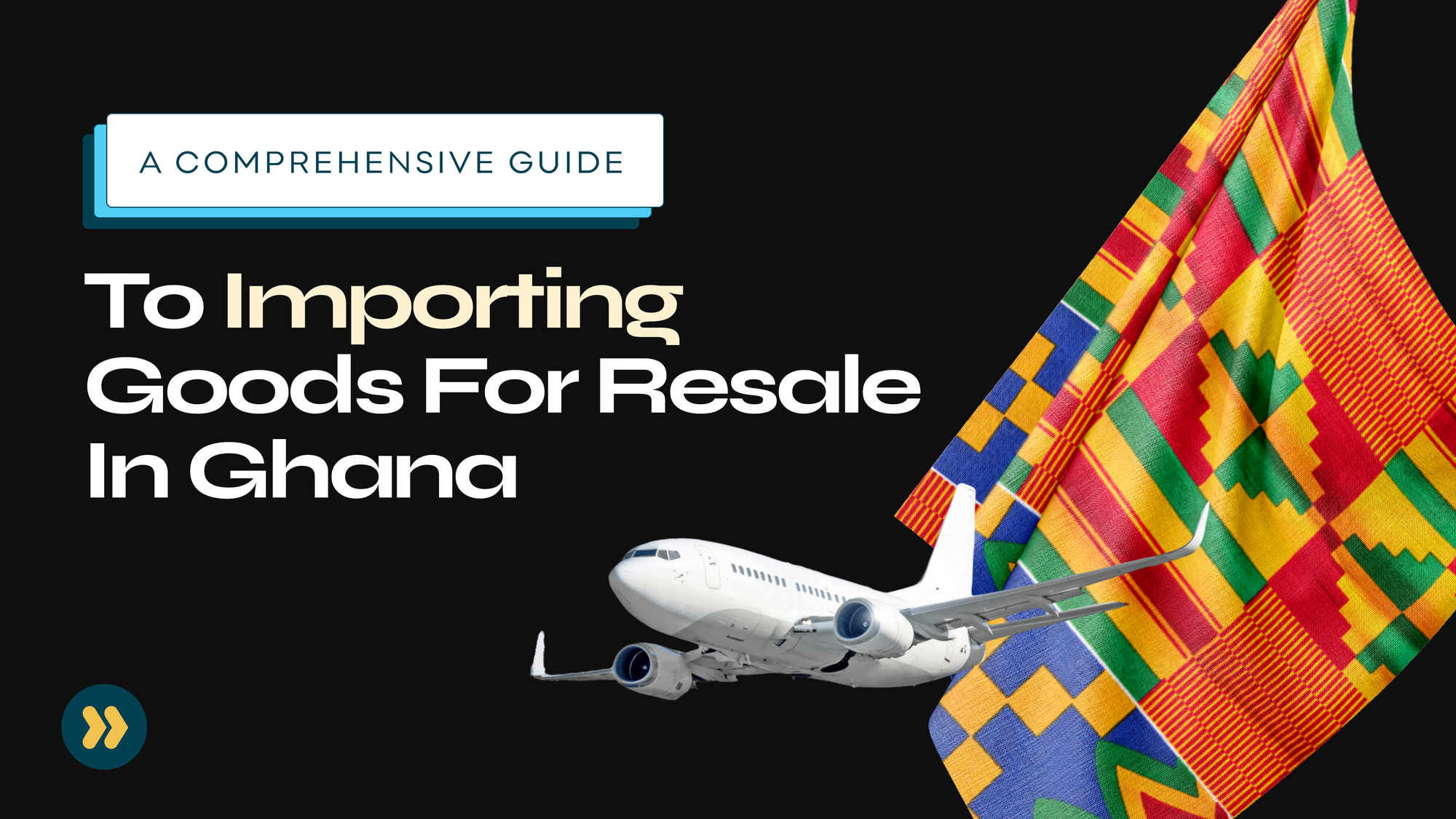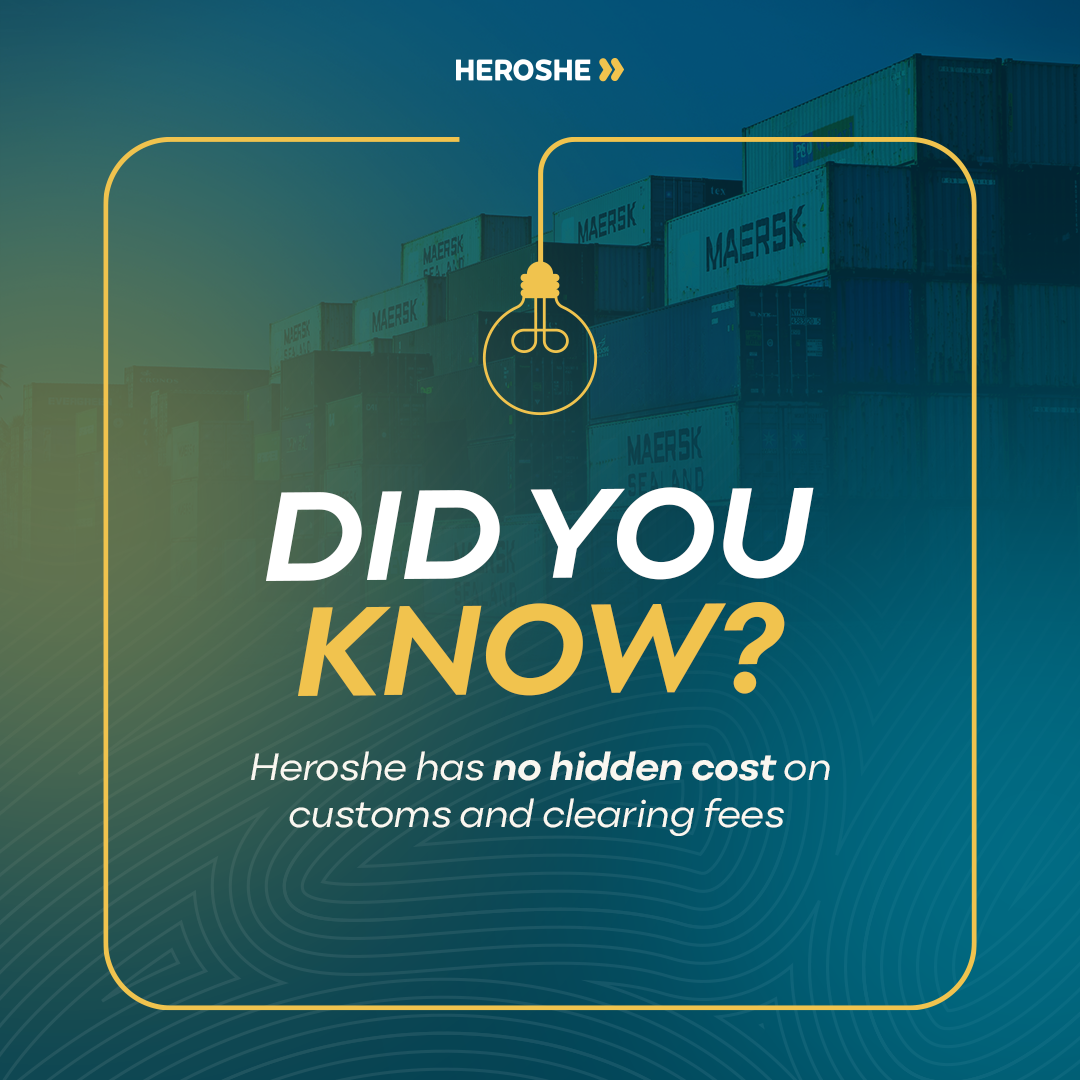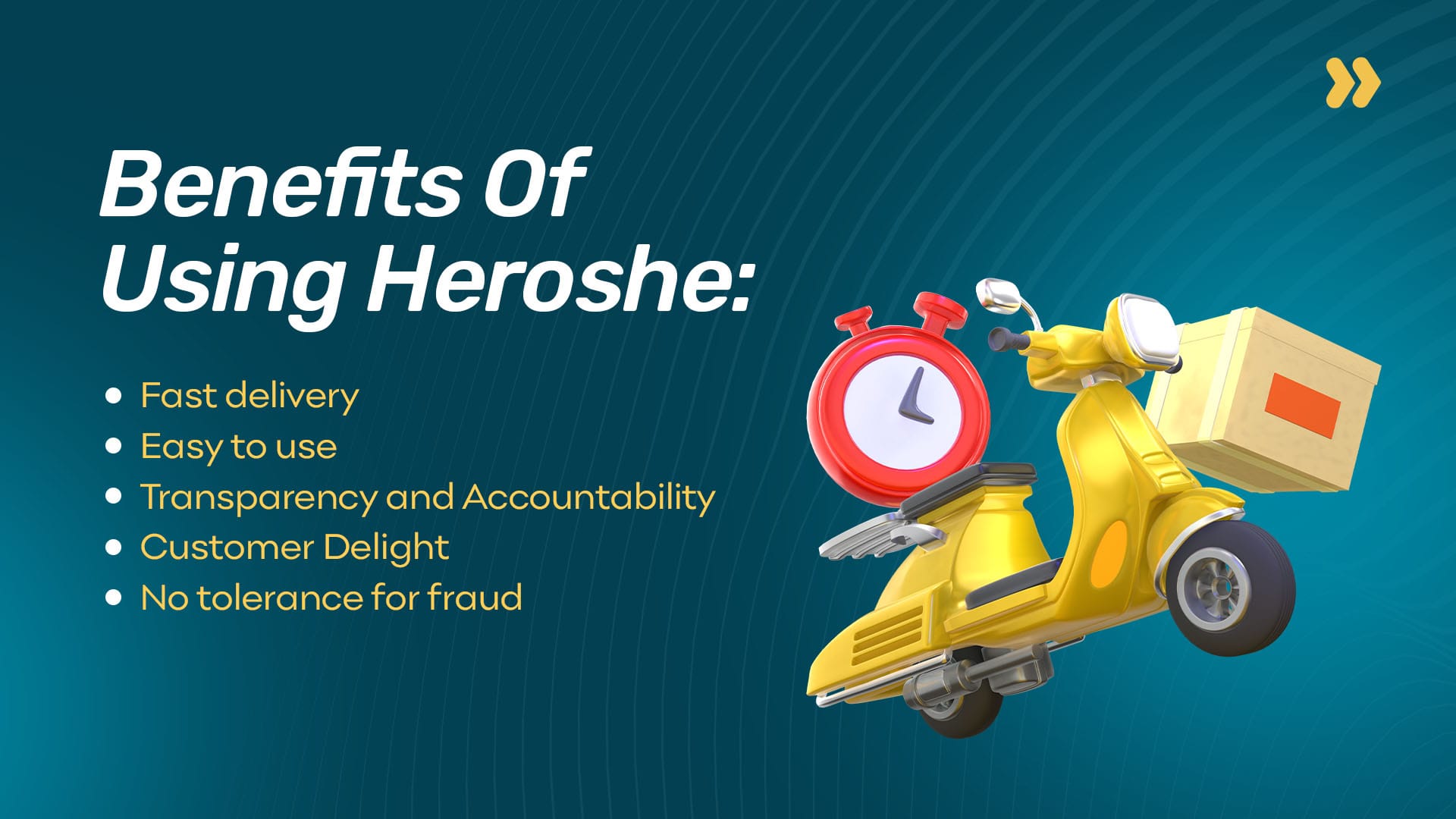Your Comprehensive Guide to Importing Goods for Resale in Ghana

Are you tired of struggling to find quality products to sell in Ghana? Are you looking for a way to import goods that are profitable and in high demand? If your answer is yes, then you've come to the right place.
Importing goods for resale can be a lucrative business, but it can also be intimidating, especially if you're new to it. That's why we've created this comprehensive guide to help you navigate the ins and outs of importing goods for resale in Ghana. From finding the right suppliers to shipping your goods down, we've got you covered. So, let's get started and make your importation journey a successful one!
Market Research:
Market research is like detective work to understand people's wants and needs. It's all about gathering information to make smart decisions about the products you want to sell. Part of your efforts for market research would include:
Product Selection:
This is where you get to select the products you want to sell. It is an important part of your business operations as it can be why you succeed or the reason your business will hit a brick wall. To successfully select excellent products, you have to do the following:
Trend Analysis:
Doing a trend analysis means looking at what is currently popular or in demand. It involves closely monitoring what customers are looking for, what they prefer, and what's in demand.
To identify market trends, you have to be a good observer. Pay attention to people’s buying behaviour and their preferences. Watch out for the products they seem to be buying more of. Secondly, you have to be a student of research. Study market research reports, look at social media discussions, and get great ideas from Reddit, Quora and Pinterest. Lastly, you have to collect feedback. Listen to your customers. Are they asking for specific items or showing interest in particular trends? You can listen to your competitors' customers if you do not yet have customers. What are they asking for?
Related: 47 Most Profitable Small Business Ideas in Ghana
Competition Analysis:
In football, there’s a thing known as an “opposition analyst.” this person's job is to make the life of the coach easier by providing detailed information on the strengths and weaknesses of the opposition players. The coach then uses this information to prepare for his games to have the upper hand.
Doing a competitive analysis means looking at what your competitors are selling, how much they charge, and what makes their products unique. You can discover areas where you can stand out by analysing existing competitors, their products, pricing, and how they position themselves.
How to Analyze Competitors:
- Product Range: Look at what products your competitors are offering. Are there any products they need to include or focus on?
- Quality and Features: Assess the quality and unique features of their products. Can you offer something better or different?
- Pricing: Look at their pricing strategy. Are they priced too high or too low? Can you provide better value for a similar price?
- Customer Service: Rate how they interact with customers. Is there room for improvement in customer service that you can capitalise on?
Profitability Assessment:
I’m no soothsayer, but I can correctly say one of the reasons you are in business is to make money. Aside from product selection and competition analysis, you’ll employ some maths skills here to see if a product will profit well.
This includes calculating how much it'll cost to bring the product to Ghana–buying, shipping, and paying taxes. After this, you’ll pick a selling price and see if you can profit after deducting all your expenses.
How to Assess Profitability:
- Cost Analysis: Calculate the total cost per unit, including purchase price, shipping, and other expenses.
- Market Price Research: Research the market to understand the average selling price for similar products.
- Profit Margin Calculation: Deduct the total cost per unit from the expected selling price to estimate your potential profit margin.
- Competition Impact: Consider how your pricing strategy will compete with existing market prices without compromising quality.

Supplier Sourcing:
When it comes to getting the products you want to sell, finding the right suppliers is like discovering the right ingredients for a recipe. There are a few different places you can look to find these suppliers.
Related: The 2023 Guide To Finding The Best Suppliers In The US, China & Dubai
Direct Manufacturers:
Going straight to the source, the manufacturers can be a smart move. Manufacturers are the ones who make the products. You can often get better prices when you work directly with them because you're skipping the middleman. Plus, you have more control over the quality of the products. There’s also the potential for customisation as you can get the manufacturers to customise products that will meet your specific needs.
Trading Companies:
Sometimes, dealing with many different manufacturers can be overwhelming. That's where trading companies come in. These companies work with multiple manufacturers, offering you a variety of products all in one place. It's like a one-stop shop for your sourcing needs.
Trading companies give you access to a wide range of products from various manufacturers. They can help bundle your orders from different manufacturers, saving you time and possibly reducing shipping costs. They are also a good source of quality products if you cannot reach manufacturers.
Online Platforms:
Just like you shop online for clothes or gadgets, you can also find suppliers on the internet. There are specific websites where you can connect with suppliers worldwide. These online platforms are huge marketplaces where you can explore, compare prices, and connect with suppliers. Examples include Amazon, AliExpress, Alibaba, and eBay.
Sourcing and Purchasing:
When buying products to sell, getting the best deals from suppliers and ensuring the products are top-notch is important. Here's how you can handle that part of your business:
Supplier Negotiations:
Talking to suppliers isn’t just about asking for prices. It's about making deals that work well for you and the supplier. Negotiating means discussing prices, payment terms, and how many products you need to buy (minimum order quantities).
To effectively negotiate with suppliers, you need to ask for better prices, especially when buying in bulk. The rule of thumb here is to “just ask for it and do so afraid.” Another thing you should also negotiate is payment terms and minimum order quantities. How long are you going to pay for it? What’s the minimum order quantity of the supplier? Is it something you can easily pull off? If not, we’ve provided tips for negotiating minimum order quantities in this blog.
Quality Control:
51% of people consider quality more important than the price, and 63% are more likely to spend more on quality items than cheaper ones. And more than anything else, product quality impacts a person's trust in a business. As someone going into business, you must check the quality of your product before shipping it to your customers. Quality control allows you to make sure your products meet the standards you’ve set for yourself.
How to Maintain Quality Control:
Factory Audit:
Before working with a supplier, you can visit their factory to see things for yourself. In this audit, you want to note the Factory profile and experience, employee workforce, facilities, machinery and equipment, license and certifications and quality management system.
Get Aligned on Expectations:
Part of your comms should be letting your supplier know your quality standards. Explicitly and communicate your needs and expectations. This will help ensure they give you the exact quality you want.
Pre-Shipment Inspections:
Before sending the products to you, ask the supplier to inspect them. This way, any issues can be sorted before shipping. In this case, you can also ask for samples to review the items yourself.
Adhering to Industry Standards:
Ensure the products meet the quality standards set in your chosen area. Doing this helps to ensure your customers get good-quality stuff.
Cargo Insurance:
When your products are on the move, things can go wrong. Cargo insurance helps protect you against damage, loss, or if the products don’t arrive. It's like having a safety net for your investment.
Related: Is Shipping Insurance Right For You?

Marketing and Sales
When selling products, telling the story of what you have and ensuring it reaches the right hands is essential. It involves a strategic approach to marketing, setting prices wisely, deciding where to sell, and ensuring customers are delighted with their experience.
Marketing Strategy:
Crafting a marketing strategy means tailoring your message about your products to the people most likely to buy them. Creating a marketing strategy involves understanding your audience and communicating through various channels—online platforms, social media, or traditional advertising—to catch their attention and interest.
Pricing and Promotions:
Determining the right price for your products involves a balancing act. Consider covering your costs while ensuring your prices appeal to customers. Additionally, implementing promotions or special offers can entice more people to buy.
Distribution Channels:
Choosing where and how your products will be sold is another decision you must make. Whether through online stores, physical shops, or wholesalers, the goal is to ensure your products are easily accessible to your target customers.
Customer Service:
Providing excellent customer service is like building a solid relationship with your customers. It involves actively listening to their needs, being friendly and helpful, and promptly resolving any issues. Happy customers are more likely to return for repeat purchases and spread your business to their family and friends.
Managing and Growing Your Business
Running an import business requires careful management and continual growth strategies. There are vital areas you should focus on to ensure smooth operations and pave the way for expansion.
Financial Management:
Financial management involves accurately recording all your business transactions, tracking expenses, and managing the money flow. By doing this, you'll clearly understand where your money is going and how it's coming in.
Budgeting and forecasting tools can be incredibly helpful here. They allow you to plan, predict potential income and expenses, and make informed financial decisions to help your business thrive.
Inventory Management:
Managing your inventory efficiently is like maintaining the right balance. You want to avoid having too much stock (which ties up your money and space) or too little (which can lead to stockouts and disappointed customers).
Inventory management involves using inventory control software that helps you keep track of your stock levels, sales trends, and reorder points(the point at which you should place a new order). Doing so ensures you have the right stock at the right time, which is vital for customer satisfaction and profitability.
Building Relationships:
Another important tip for growing your business is developing solid connections with your suppliers, customers, and others in the industry. Good relationships with suppliers lead to better deals or priority treatment. Meanwhile, strong relationships with customers can lead to repeat business and positive word-of-mouth.
Additionally, networking with industry professionals can provide valuable insights into market trends, potential collaborations, and new opportunities to help your business grow.
Getting your Shipment Delivered
We’ve discussed almost everything you need to know before importing goods for resale in Ghana. But we’re yet to talk about one thing–shipping and getting your goods delivered. When looking for a shipping company, you should take note of the following:
Experience and reputation:
When looking for a shipping company, you need to evaluate their experience and reputation. Are they reliable? Will they be able to pull your delivery successfully? Research online and read reviews to understand their reputation and reliability.
Shipping options:
Different shipping companies offer shipping options, such as air freight, sea freight, and express delivery. Consider the type and volume of goods you are importing and choose a shipping method that meets your needs and budget.
Shipping rates:
Shipping rates vary widely between companies, so it's important to compare prices and find a shipping company that offers competitive rates without compromising quality.
Tracking:
The shipping process can be relatively long, and you need to be kept updated on the status of your shipment. Your shipping provider should be able to track your shipment, showing you where and where your items are at a particular time.
Customs clearance:
Customs clearance is a complex process that involves navigating various regulations and paperwork. Look for a shipping company with experience handling customs clearance and can help you navigate the process smoothly.
Customer service:
Choose a shipping company that provides excellent customer service and is responsive to your questions and concerns. A good shipping company should be easy to reach and keep you informed throughout the shipping process.
The Final Recommendation That Makes All The Difference
When looking to ship your items from stores in the UK and USA, Heroshe is your trusted buddy. With years of experience serving over 40,000 businesses and individuals, we can safely deliver your items.
Related: 10 Simple Tips Every Heroshe First-Time Customer Will Benefit From

From fast shipping times, usually within 10-14 working days, competitive rates at $8 per pound, tracking services, and excellent customer service, we are the partner you need to make a difference.
So what are you waiting for? Create an account on Heroshe today and start the journey of importing goods for resale.

